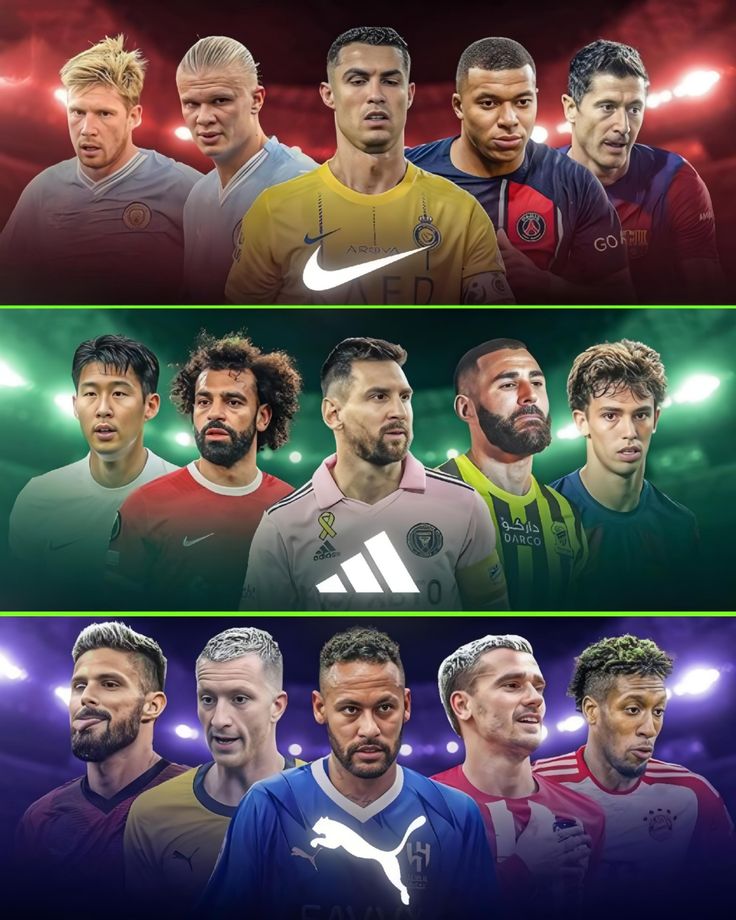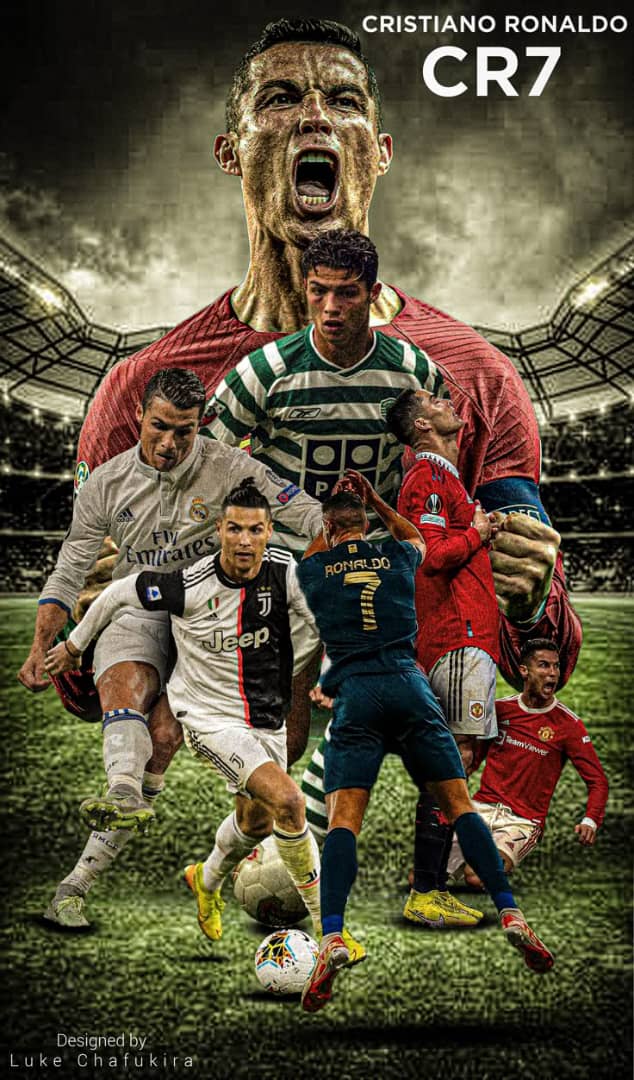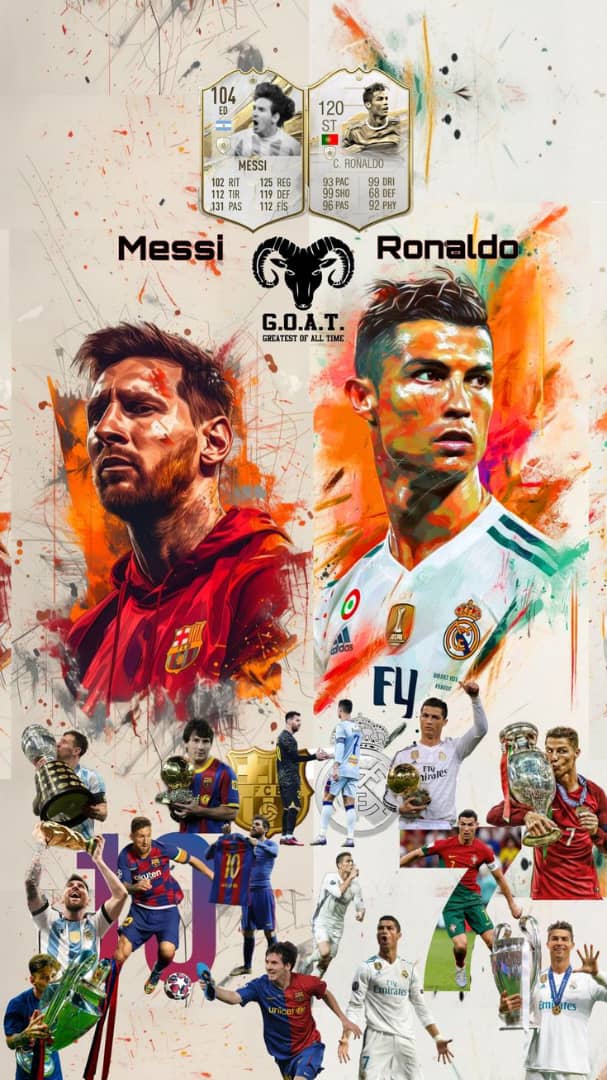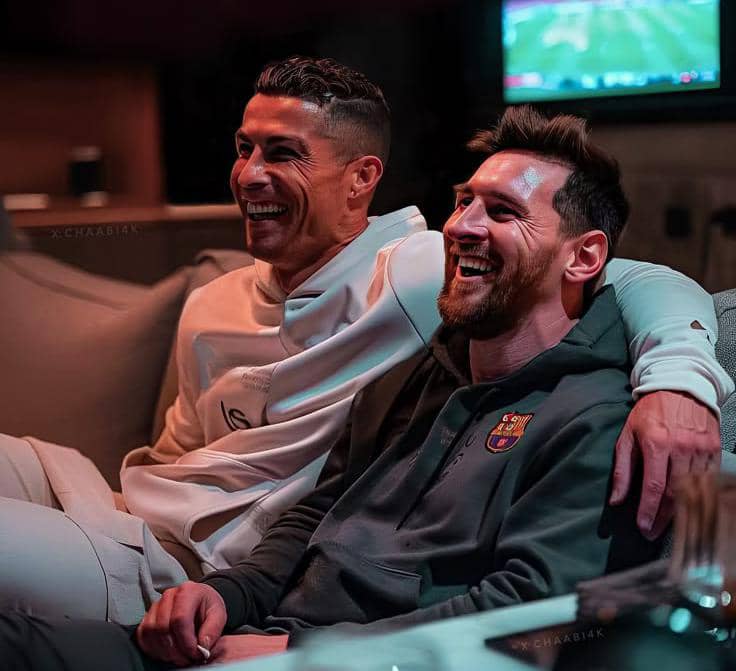
Table of Contents
- Introduction
- What It Means to “Change the Game”
- Pelé – The Globalization of Football
- Diego Maradona – The God of Flair and Rebellion
- Johan Cruyff – The Philosopher Player
- Franz Beckenbauer – The Sweeper Revolution
- Michel Platini – The Midfield Maestro
- George Weah – The Pioneer of African Football
- Ronaldo Nazário – The Prototype Modern Striker
- Zinedine Zidane – The Poet of the Ball
- David Beckham – The Rise of the Football Brand
- Thierry Henry – Redefining the Forward Role
- Ronaldinho – Joy, Joga Bonito, and Artistry
- Lionel Messi – The Perfect Playmaker
- Cristiano Ronaldo – The Pinnacle of Athleticism
- Andrea Pirlo – Elegance in a Regista
- Xavi Hernández – Master of the Pass
- Andrés Iniesta – The Shadow Genius
- Manuel Neuer – The Sweeper Keeper
- Kylian Mbappé – The Future Arrives Early
- Megan Rapinoe – Changing the Women’s Game
- Marta – The Greatest Woman to Grace the Field
- Sadio Mané and Mo Salah – African Pride and Global Impact
- Neymar – The Showman and Social Phenomenon
- Virgil van Dijk – Defensive Dominance in the Modern Era
- Erling Haaland – Redefining Physical Power
- Luka Modrić – Technical Leadership from the Balkans
- Didier Drogba – Football and Peace
- Clarence Seedorf – Versatility and Intelligence
- Conclusion – Legacy, Evolution, and the Next Game Changers
1. Introduction
Throughout football history, certain players haven’t just performed at a high level—they’ve transformed the game. These athletes have redefined tactics, shifted cultural expectations, influenced politics, and shaped how billions perceive football.
This post celebrates the individuals who didn’t just play the game—they rewrote it.
2. What It Means to “Change the Game”
To change the game means to leave an indelible mark on football’s landscape—technically, tactically, socially, or commercially. These players:
- Invented new playing styles
- Expanded football to new markets
- Influenced politics or social change
- Became global icons
- Inspired tactical revolutions
- Created new business or branding models
They are football’s revolutionaries, not just its stars.
3. Pelé – The Globalization of Football
- Brazil
- 1956–1977
- 3x World Cup Champion
Pelé brought Brazilian flair to the world. As a teenager winning the 1958 World Cup, he instantly became football’s first global superstar. He scored over 1,000 goals and helped bring football to America via the New York Cosmos.
Pelé turned football into a global entertainment product.
4. Diego Maradona – The God of Flair and Rebellion
- Argentina
- 1976–1997
Maradona was football’s rockstar. His “Hand of God” and “Goal of the Century” in 1986 summed up the duality of genius and controversy. He played like a magician in boots and gave hope to Argentina during political turmoil.
He made football mythical.
5. Johan Cruyff – The Philosopher Player
- Netherlands
- 1964–1984
The father of *Total Football, Cruyff changed the game tactically. On the pitch, he was agile, cerebral, and elegant. Off the pitch, he transformed *Barcelona’s football culture, paving the way for modern tactical systems.
His legacy lives in Guardiola, Xavi, and Ajax’s DNA.
6. Franz Beckenbauer – The Sweeper Revolution
- Germany
- 1964–1983
Known as *”Der Kaiser”, Beckenbauer invented the *libero role—an attacking centre-back who organizes play from the back. His elegance and authority changed how defenders were viewed.
Without him, we wouldn’t have players like Maldini or Lahm.
7. Michel Platini – The Midfield Maestro
- France
- 1972–1987
Platini turned playmaking into an art. He dominated the 1984 Euro and redefined attacking midfield roles. His off-field influence (as UEFA President) further shaped the game’s regulations and structure.
8. George Weah – The Pioneer of African Football
- Liberia
- 1985–2003
The only African Ballon d’Or winner, Weah was a symbol of African excellence. He inspired a continent and became Liberia’s president after retiring. He showed that football could be a path to both global success and national service.
9. Ronaldo Nazário – The Prototype Modern Striker
- Brazil
- 1993–2011
He combined speed, power, and dribbling like never before. Ronaldo broke transfer records, destroyed defences, and changed how strikers train. Injuries didn’t stop him from becoming a World Cup legend.
10. Zinedine Zidane – The Poet of the Ball
- France
- 1988–2006
Zizou made midfield control beautiful. With sublime touch and intelligence, he made pressure vanish. His 1998 World Cup performance united a divided France.
Later, as a coach, he brought tactical innovation and calmness to Real Madrid.
11. David Beckham – The Rise of the Football Brand
- England
- 1992–2013
Beckham was the first modern footballer to become a global commercial icon. He mastered free-kicks, launched fashion trends, and opened football markets in the US and Asia.
He made celebrity status part of the football package.
12. Thierry Henry – Redefining the Forward Role
- France
- 1994–2014
Henry was not a classic striker. He drifted wide, dropped deep, and attacked from unpredictable angles. His play at Arsenal revolutionized the Premier League.
13. Ronaldinho – Joy, Joga Bonito, and Artistry
- Brazil
- 1998–2015
No player expressed joy like Ronaldinho. He embodied Brazilian creativity and inspired millions with his skills. He also brought freestyle football into the spotlight.
Football was never more fun.
14. Lionel Messi – The Perfect Playmaker
- Argentina
- 2004–Present
Messi combines vision, dribbling, scoring, and humility. He’s reinvented the *false 9, playmaking winger, and attacking midfielder roles. With 8 Ballon d’Ors and a World Cup, he has redefined *GOAT debates.
He’s the closest football has to perfection.
15. Cristiano Ronaldo – The Pinnacle of Athleticism
- Portugal
- 2002–Present
Cristiano changed the standards for physicality, work ethic, and longevity. He showed that with discipline and mentality, greatness is possible. His marketability and consistency redefined player branding.
16. Andrea Pirlo – Elegance in a Regista
- Italy
- 1995–2017
Pirlo made deep-lying playmaking fashionable. With calmness and accuracy, he controlled games from midfield. His free kicks, passes, and demeanor influenced players like Verratti and Jorginho.
17. Xavi Hernández – Master of the Pass
- Spain
- 1998–2019
Xavi was the metronome of tiki-taka. He turned passing into poetry. His football IQ and control redefined midfield dominance.
18. Andrés Iniesta – The Shadow Genius
- Spain
- 2002–Present
Less celebrated than Xavi but equally vital. Iniesta scored the 2010 World Cup winner, dribbled through packed midfields, and showed that humility and grace could define greatness.
19. Manuel Neuer – The Sweeper Keeper
- Germany
- 2006–Present
Neuer reinvented goalkeeping. His high line, passing, and bravery inspired a new breed of keepers like Ederson and Alisson.
20. Kylian Mbappé – The Future Arrives Early
- France
- 2015–Present
Mbappé exploded at 19 in the 2018 World Cup. He mixes raw pace with maturity and big-match performances. He’s redefining what a modern striker can be.
21. Megan Rapinoe – Changing the Women’s Game
- USA
- 2006–Present
More than a footballer, Rapinoe is a symbol of equality and activism. Her play helped the US dominate; her voice reshaped gender, racial, and LGBTQ+ conversations in sport.
22. Marta – The Greatest Woman to Grace the Field
- Brazil
- 2000–Present
Marta holds the most World Cup goals (men or women). Her technique, vision, and dominance elevated women’s football globally.
23. Sadio Mané and Mo Salah – African Pride and Global Impact
These two stars brought African football to *new global heights, breaking barriers in European leagues, while giving back to communities and *redefining philanthropy in sport.
24. Neymar – The Showman and Social Phenomenon
- Brazil
- 2009–Present
A polarizing figure, Neymar embodies flair, risk, and spectacle. He broke transfer records and became a marketing juggernaut. He’s the symbol of modern football’s fusion of skill and style.
25. Virgil van Dijk – Defensive Dominance in the Modern Era
- Netherlands
- 2011–Present
Van Dijk made defending cool again. His composure, strength, and leadership turned Liverpool’s fortunes and rebalanced football’s focus on the backline.
26. Erling Haaland – Redefining Physical Power
- Norway
- 2016–Present
Haaland is a force of nature. With size, speed, and insane efficiency, he represents the future of No. 9s—robotic yet ruthless.
27. Luka Modrić – Technical Leadership from the Balkans
- Croatia
- 2003–Present
From war-torn beginnings to Ballon d’Or, Modrić redefined leadership through calm control. He made midfield mastery look effortless.
28. Didier Drogba – Football and Peace
- Ivory Coast
- 1998–2018
Drogba stopped a civil war—literally. His appeal for peace after qualifying for the World Cup helped unite a divided nation. He was a warrior on the field and a peacemaker off it.
29. Clarence Seedorf – Versatility and Intelligence
- Netherlands
- 1992–2014
The only man to win the Champions League with three different clubs, Seedorf was football’s quiet genius. A philosopher in boots, he bridged eras and ideas.
30. Conclusion – Legacy, Evolution, and the Next Game Changers
These players didn’t just rack up goals or trophies—they reshaped football’s meaning, mechanics, and message. They showed us new ways to play, dream, and understand the beautiful game.
As football continues to evolve, the next generation will be inspired by these icons—and will redefine the game all over again.
Who’s next?




